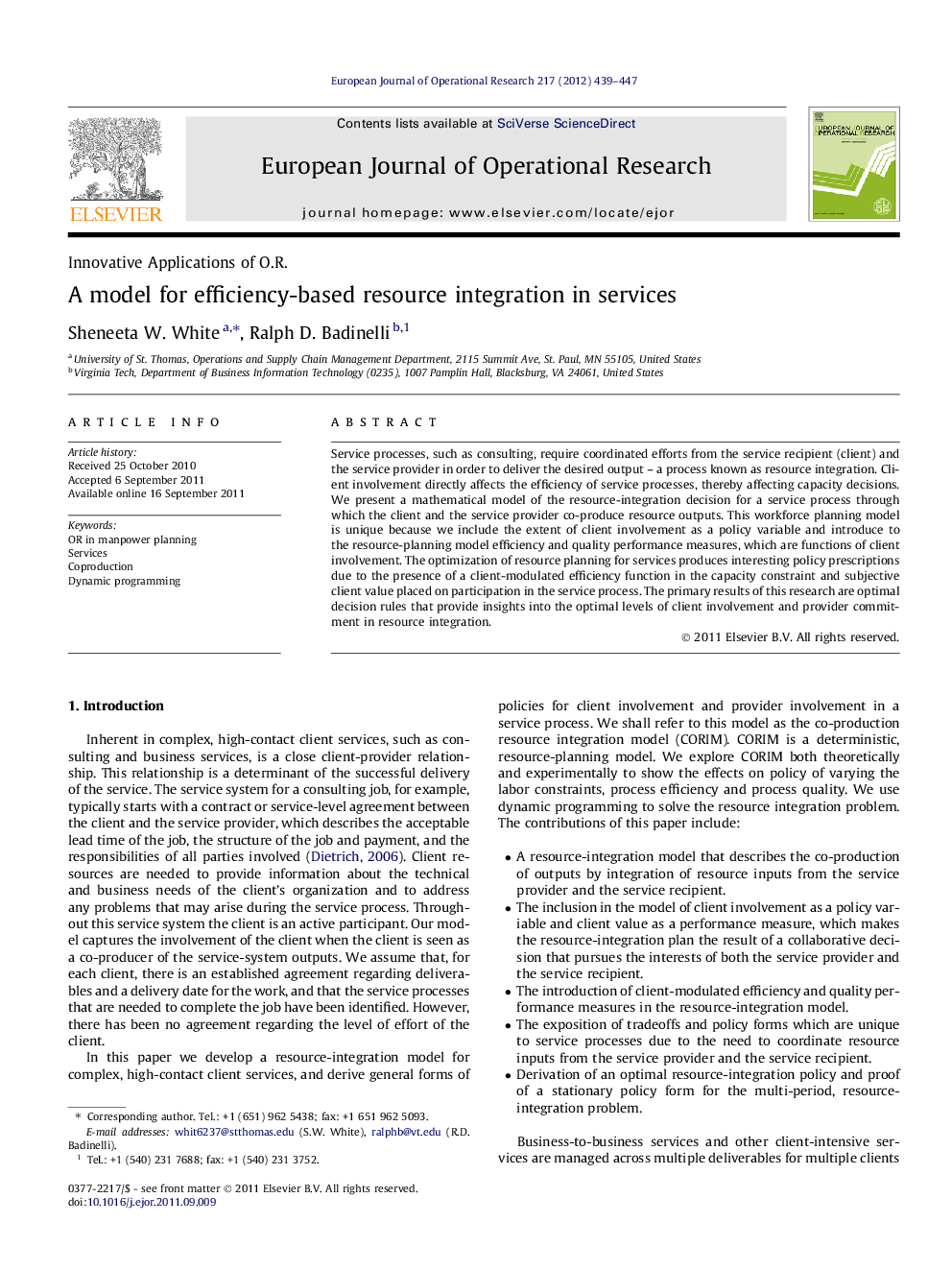| Article ID | Journal | Published Year | Pages | File Type |
|---|---|---|---|---|
| 478436 | European Journal of Operational Research | 2012 | 9 Pages |
Service processes, such as consulting, require coordinated efforts from the service recipient (client) and the service provider in order to deliver the desired output – a process known as resource integration. Client involvement directly affects the efficiency of service processes, thereby affecting capacity decisions. We present a mathematical model of the resource-integration decision for a service process through which the client and the service provider co-produce resource outputs. This workforce planning model is unique because we include the extent of client involvement as a policy variable and introduce to the resource-planning model efficiency and quality performance measures, which are functions of client involvement. The optimization of resource planning for services produces interesting policy prescriptions due to the presence of a client-modulated efficiency function in the capacity constraint and subjective client value placed on participation in the service process. The primary results of this research are optimal decision rules that provide insights into the optimal levels of client involvement and provider commitment in resource integration.
► This paper lays a foundation for service-system resource planning. ► Our model includes the client as a co-producer of service outputs. ► We capture the effects of client intensity on efficiency and quality in our model. ► As a primary result, we develop policy recommendations for service enterprises.
